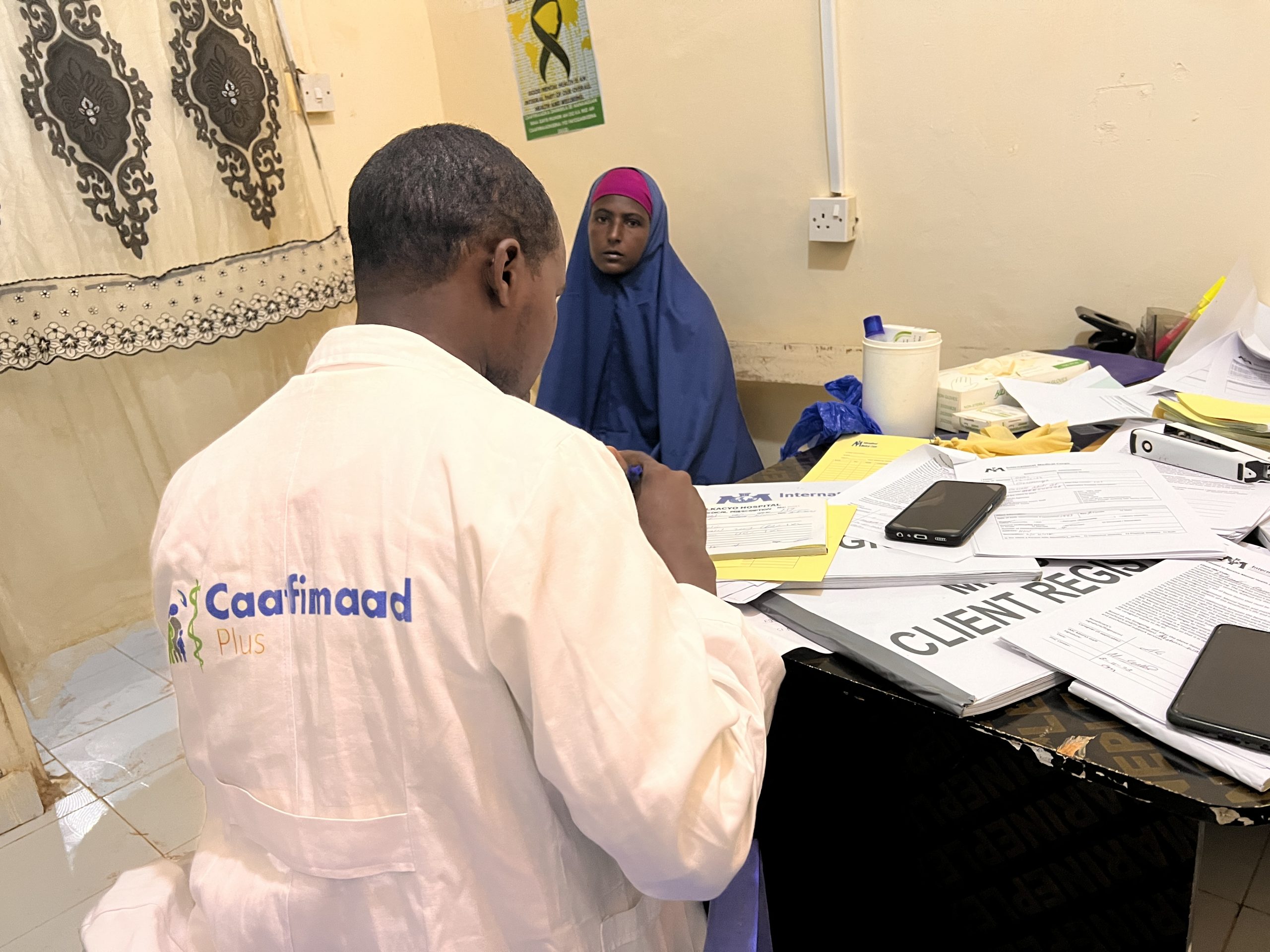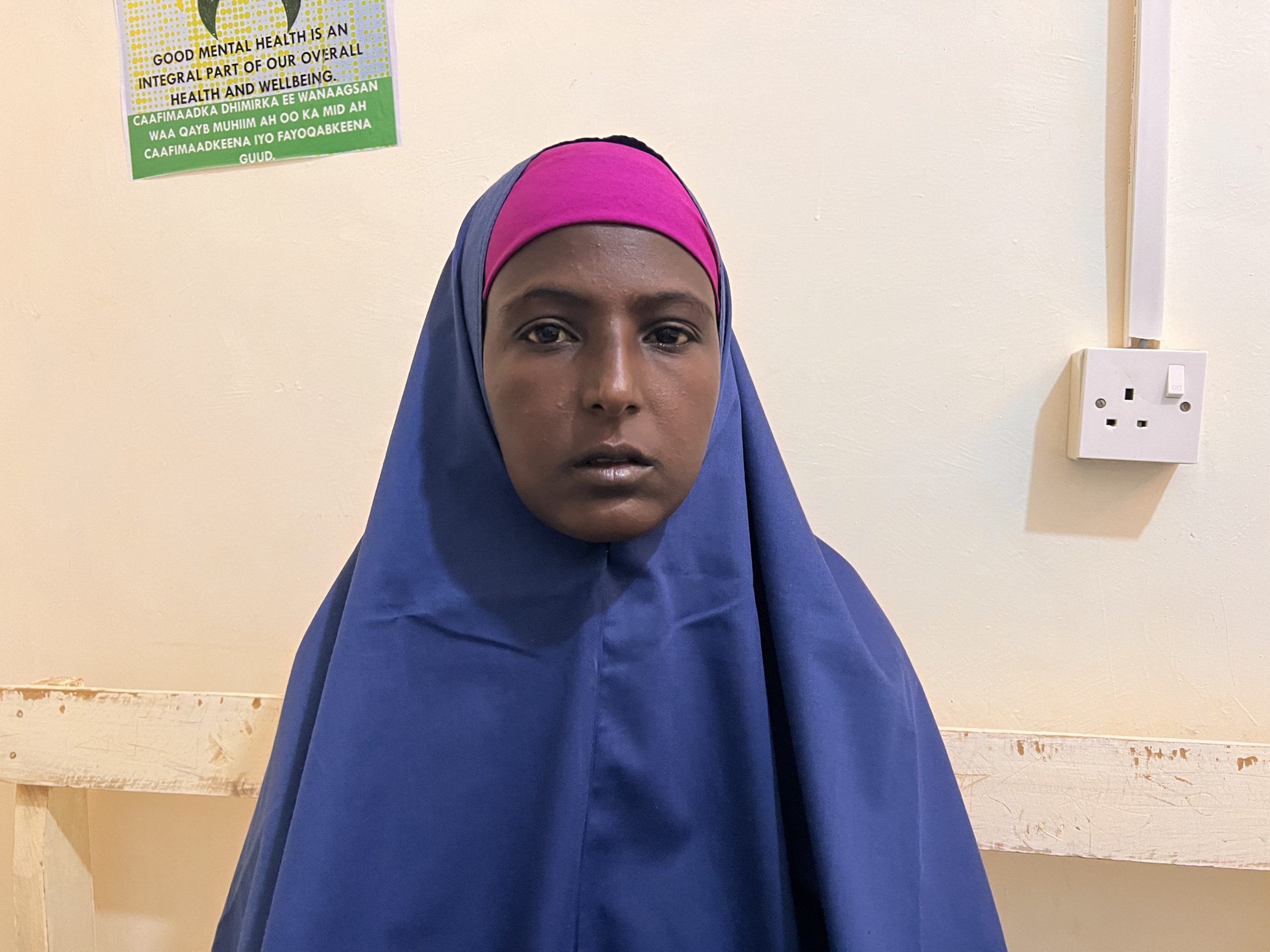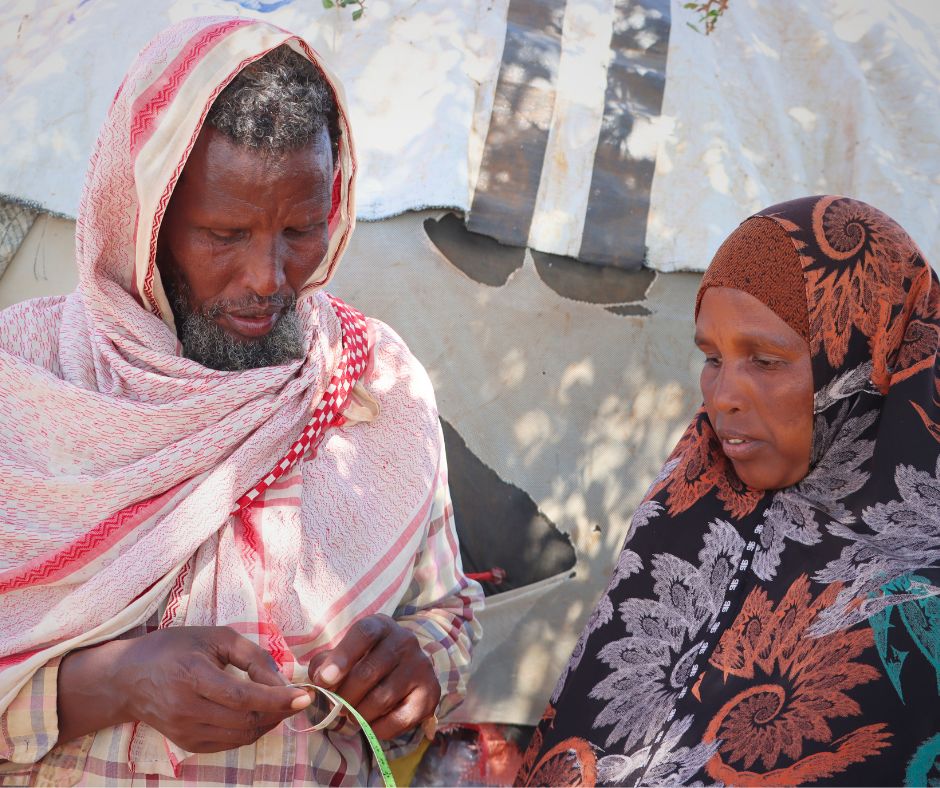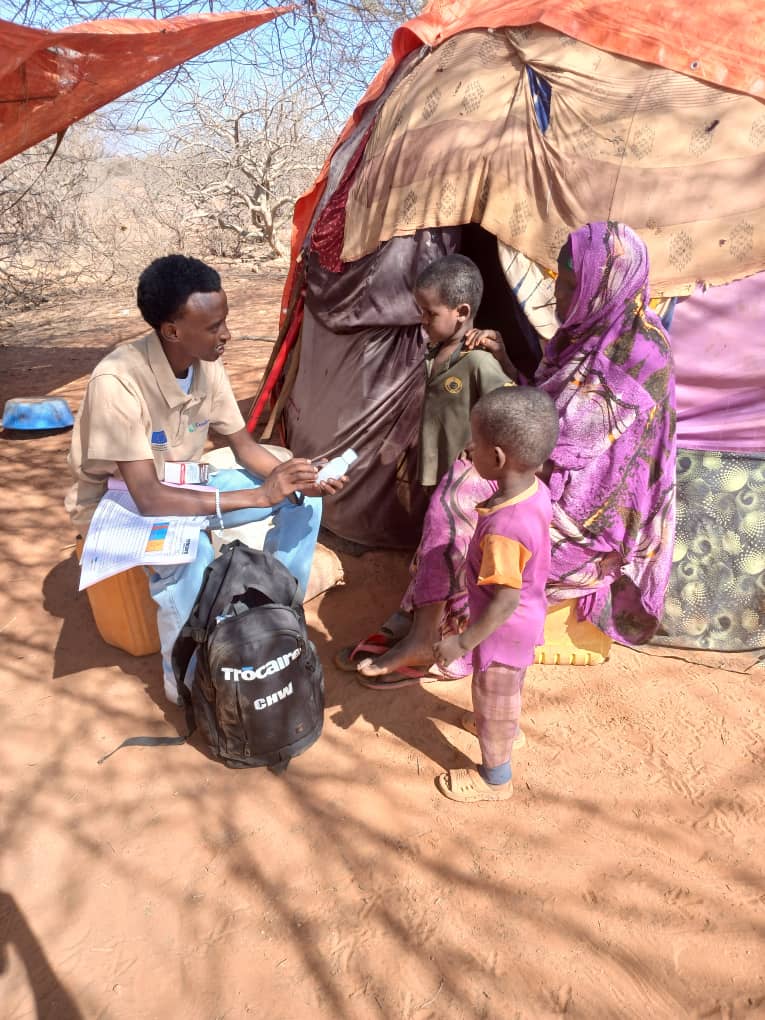Mama Gacalo Cali has for nine long year’s battled epilepsy, enduring seizures twice a day. This illness, and the economic hardships her family faced, caused her constant anxiety and took a toll on her overall well-being.
The thirty-year-old mother became aware of the mental health and psychosocial support services provided by Galkacyo South Hospital through the community network. Without delay, she visited the hospital to access the necessary medical services. The outcomes she achieved from the treatment were truly remarkable, highlighting the effectiveness of the provided care.
“Since I began taking the medications, I have not had a single seizure.” She said. The support she received from the hospital and mental health services made a world of difference. Mama Gacalo reveals, “My mind used to be in turmoil, and I carried immense stress, but now I feel much better.”
The family relies on the small income earned by her 10-year-old son from shining shoes.
Mental health issues affect one in every five individuals in Somalia, as reported by the World Health Organization (WHO). Prolonged conflict, economic hardships, drug abuse, and the breakdown of social cohesion make this problem even more challenging.
The limited number of hospitals and experts in the field of mental health further complicates the situation.
However, amidst these challenges, there is hope. Mama Gacalo’s remarkable recovery serves as a beacon of hope, highlighting the transformative impact of accessible mental health services provided by Galkacyo South Hospital. Managed by the International Medical Corps and funded by the European Union Humanitarian Aid (EU ECHO) these services offer a lifeline to crisis affected communities especially vulnerable families struggling to afford both medical expenses and food, the hospital’s services have become a lifeline.
Mama Gacalo follows her doctor’s appointments regularly to reduce the risk of seizures. Her health has gotten better, and she now spends time with her four children.
Dr. Abdiqadir Ahmed, the head of the Mental Health Department at Galkacyo South Hospital, highlights the history of mental health treatment at the hospital.
“In the past, we used to visit people in their homes because they were unaware of the services we provided. But now, we’re seeing a change in the pattern. People are lining up at the hospital every day, seeking this service,” shared Dr. Abdiqadir.
Every day, the hospital receives around 20-25 cases, primarily related to anxiety caused by tough economic situations and conflict. Unfortunately, due to the stigma associated with mental health, many individuals hesitate to seek medical assistance, further worsening the situation. Encouragingly, Dr. Abdiqadir notes that as the services become more widely known, people are now seeking assistance on their own.
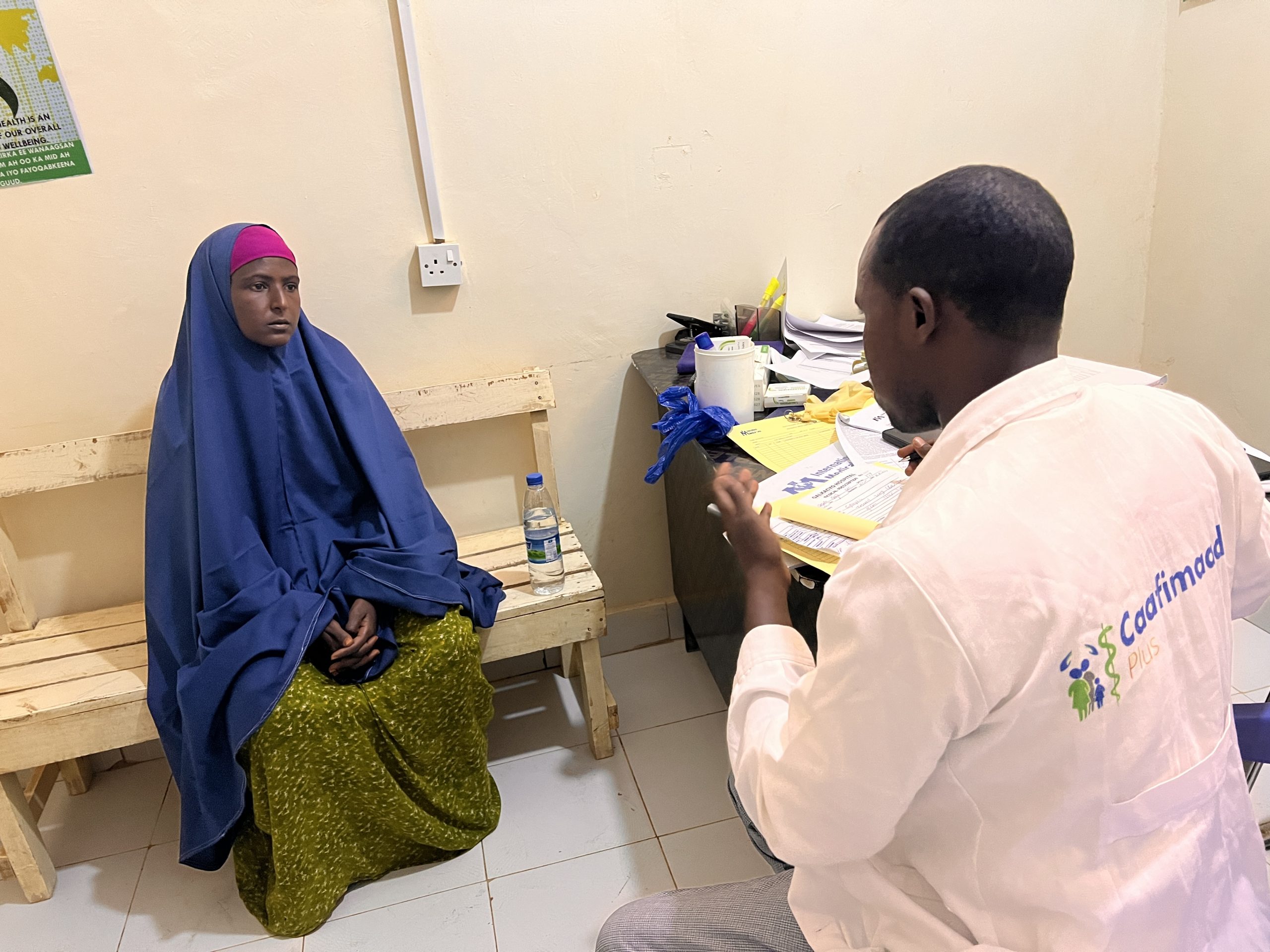
However, despite these positive initiatives, challenges persist in addressing mental health in Somalia. Stigma surrounding mental illness remains a significant barrier, leading many individuals to avoid seeking help due to fear of social judgment and discrimination. Limited resources and
With partners like International Medical Corps, Caafimaad Plus Consortium is establishing and strengthening mental health facilities, integrating mental health services into primary healthcare settings, and ensuring the availability of essential medications. Additionally, ongoing support systems, such as community-based rehabilitation programs and peer support networks, are being developed to provide long-term assistance and promote psychological well-being.
To tackle mental health in Somalia, everyone—governments, international organizations, and local communities—must collaborate. This means providing enough resources, developing sustainable mental health policies, and ensuring social inclusion for individuals with mental health conditions.
Mama Gacalo’s story highlights the impact of accessible mental health services provided by the Caafimaad Plus Consortium and its partners. This comprehensive approach have made a significant difference, helping to reduce stigma and ensuring individuals receive the necessary support for a fulfilling life. With something like this, Somalia can work towards a future, prioritizing mental health, dismantling stigma, and empowering individuals to thrive.
